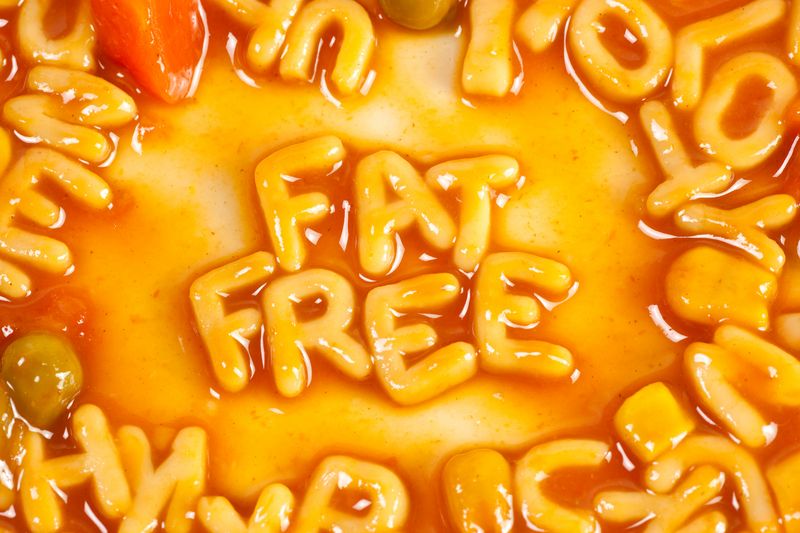
Fat Lie: Fat Substitutes Create Real Body Fat

Artificial fat substitutes, often used by dieters to lose weight, might in fact contribute to weight gain, according to a study from Purdue University researchers.
This builds upon similar studies by the same research group, as well as by others, demonstrating how artificial sweeteners also promote weight gain.
It's getting to the point where you can't stay healthy by tricking your body and eating junk food with laboratory-crafted chemicals replacing the nature-made bad stuff. [7 Little-Known Tricks that Shave Pounds]
Pavlov revisited
The Purdue study, detailed in the current issue of the journal Behavioral Neuroscience, examined rats eating potato chips with olestra. Olestra is a synthetic fat substitute with zero calories, thought to pass through the body undigested.
Rats that ate a combination of high-fat potato chips — a.k.a. regular potato chips — along with zero-fat olestra potato chips actually gained more weight and developed more fatty tissue than those rats that just at the regular potato chips. Worse, the fat rats couldn't lose the weight after they stopped eating potato chips.
The researchers, led by Susan Swithers, speculate that the fat substitute is playing tricks on your brain. Food with a sweet or fatty taste usually indicates a large number of calories, and the taste triggers various responses by the body, including salivation, hormonal secretions and metabolic reactions. Fat substitutes can interfere with that relationship, Swithers said, when the body expects to receive a large burst of calories but is fooled by a fat substitute.
Sign up for the Live Science daily newsletter now
Get the world’s most fascinating discoveries delivered straight to your inbox.
"These data are consistent with the hypothesis that animals may use the sensory properties of food to predict the consequences of consuming food, and that reducing the validity of this predictive relation can lead to positive energy balance," the researchers explain in the paper.
That is, animals ultimately crave and consume more calories when their diets are filled with the trickery of zero-calorie fat and sweet substitutes.
Of rats and men
Swithers stressed that the study was conducted only on rats and that it is difficult to extrapolate these results to humans. Yet this study adds fuel to the massive, recent Harvard study revealing how food type matters more than calorie content in the game of weight gain.
That study, published last month in the New England Journal of Medicine, found that processed foods such as French fries don't satiate the consumer as well as whole foods, such as whole grains and nuts. People who eat diets filled with processed foods and simple carbohydrates ultimately crave more calories, eat more, and gain more weight. [4 Fad Diets That Don't Work Well]
Olestra is not without its well-known problems. Side effects include greasy stool and difficulty absorbing certain fat-soluble vitamins — the latter being all the more crucial in a junk-food diet starved of vitamins.
The Purdue study, however, has implications beyond olestra. The researchers explained that fat substitutes in general, and not the precise chemical makeup of olestra, are likely responsible in tricking the brain and setting up a scenario for extra consumption and weight gain.
So, once again we are confronted with the fact that successful dieting entails consuming natural foods minimally processed, and not diet cake, diet chips and diet soda. That's food for thought for our inner rat.
Christopher Wanjek is the author of the books "Bad Medicine" and "Food At Work." His column, Bad Medicine, appears regularly on Live Science.

Christopher Wanjek is a Live Science contributor and a health and science writer. He is the author of three science books: Spacefarers (2020), Food at Work (2005) and Bad Medicine (2003). His "Food at Work" book and project, concerning workers' health, safety and productivity, was commissioned by the U.N.'s International Labor Organization. For Live Science, Christopher covers public health, nutrition and biology, and he has written extensively for The Washington Post and Sky & Telescope among others, as well as for the NASA Goddard Space Flight Center, where he was a senior writer. Christopher holds a Master of Health degree from Harvard School of Public Health and a degree in journalism from Temple University.











